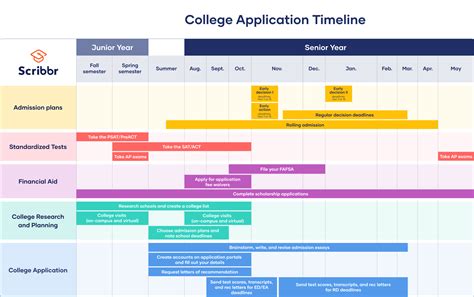Deciding whether to apply for graduate school in your junior or senior year of undergrad is a big decision, it’s important to weigh the pros and cons of your options. Here’s a breakdown of what you need to consider:

Application Process
Junior Year
Pros:
- Early start: You can start researching programs and building connections with potential advisors early on.
- More time to prepare: You have two full years to prepare for the GRE or other standardized tests, gather letters of recommendation, and write a strong personal statement.
- Potential for early acceptance: Some programs offer early admission to qualified junior applicants, which can give you peace of mind and allow you to focus on your senior year.
Cons:
- Less experience: You may have less research or work experience to draw on for your application.
- Uncertainty about future plans: You may not be sure what your career goals are or which graduate program is the best fit for you.
Senior Year
Pros:
- More experience: You will have more academic and extracurricular activities to demonstrate your abilities and interests.
- Stronger application: You can highlight your recent accomplishments and experiences, which can make your application more competitive.
- Better career planning: You have more time to research different graduate programs and make an informed decision about your future.
Cons:
- Shorter timeline: You may have less time to prepare for the application process, which can be stressful.
- More competition: Senior applicants typically face more competition for admission to graduate programs.
- Too little time to enjoy undergraduate life: You may feel pressured to focus on your application instead of enjoying your last year of undergrad.
Factors to Consider
Beyond the application process, there are other factors to consider when deciding when to apply for grad school:
- Career goals: What are your career aspirations? Do you need a graduate degree to reach your goals?
- Financial situation: How will you finance graduate school? Do you need to work or take out loans?
- Personal circumstances: Are there any personal or family responsibilities that could affect your ability to apply or attend graduate school?
Making a Decision
Ultimately, the best time to apply for grad school depends on your individual circumstances and goals. If you want to start your graduate studies early or have a strong application with lots of experience, applying in your junior year could be a good option. However, if you need more time to prepare or want to focus on your undergrad experience, waiting until your senior year may be a better choice.
Pros & Cons Tables
Applying for Grad School in Junior Year
| Pros | Cons |
|---|---|
| Early start | Less experience |
| More time to prepare | Uncertainty about future plans |
| Potential for early acceptance |
Applying for Grad School in Senior Year
| Pros | Cons |
|---|---|
| More experience | Shorter timeline |
| Stronger application | More competition |
| Better career planning | Too little time to enjoy undergraduate life |
Conclusion
Whether you apply for grad school in your junior or senior year, it’s important to start planning early. Research different programs, talk to potential advisors, and build a strong academic and extracurricular profile. With careful planning, you can increase your chances of admission to the graduate program of your choice.
